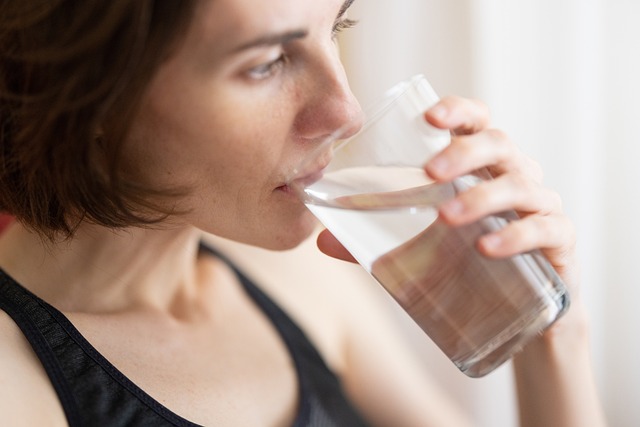This is a frequent question breastfeeding mothers ask. It is a good one to ask too! If you want to ensure a good milk supply, you need to stay well hydrated! In this article, we will discuss how much water a breastfeeding mother should drink, why it is important, and how dehydration impacts milk supply.
The Impact of Dehydration On Breastfeeding
Dehydration is something everyone struggles with. According to the National Institution of Health, 75% of American adults suffer from chronic dehydration. These individuals only drink about 2.5 cups of water per day. For women, according to the Mayo Clinic, the recommended daily amount of water intake should be 11.5 cups (92 oz) of water.
However, most adults only drink around 2.5 cups of water per day. This leaves your body unable to perform many functions appropriately. Dehydration negatively impacts breastfeeding.
Breastmilk is 90% water! That is incredible! This is because your baby needs to stay hydrated just as much as you do. The other 10% of breastmilk is made up of proteins and fats that help your baby grow. If you are dehydrated, your baby will be as well. We do not want a dehydrated baby!
Breastmilk is 90% water! The other 10% is made up of proteins and fats that help your baby grow.
Signs Of Dehydration
Your body will give you signs of being dehydrated. Once you notice these symptoms, be sure to drink more water! Below are symptoms of dehydration according to the Cleveland Clinic.
Signs of dehydration in mothers:
- Dry mouth and tongue
- Dizziness
- Lightheadedness
- Feeling tired
- Peeing 3-4 times per day or less
- Urine is yellow or dark yellow in color
Signs of dehydration in infants and children:
- No wet tears when crying
- less than 6 wet/dirty diapers per day (infants)
- No wet/dirty pull-up or going potty within 8 hours (children)
- Dry tongue and lips
- Sunken soft spot on infant’s head
- Sunken eyes
- Dry, wrinkled skin
- Deep, rapid breathing
Contact Your Doctor
Be sure to call your pediatrician with any concerns you have regarding the health of your infant or child. If you believe your child needs medical assistance, call 9-1-1.
How Much Water Should A Breastfeeding Mom Drink Per Day?
When you’re breastfeeding, this number goes way up! Instead of drinking 11.5 cups of water, a breastfeeding mother should drink 16 cups of water per day (128 oz). This really is an incredible amount of water when you think about it.
For some mothers, this seems impossible to accomplish. However, if you keep a healthy routine of drinking water, you will easily be able to get 16 cups of water in per day.
Breastfeeding mothers should drink 16 cups of water per day! Or 128 ounces!
Some mothers, while they breastfeed, are overcome by a huge thirst and urge to drink water. For these mothers, drinking water is easy! Other mothers may not experience this intense thirst and struggle a little more.
If you need tips for how to stay well hydrated as a mother, fill out the form at the beginning of this article to learn 3 easy tips to stay hydrated as a busy, breastfeeding mom!
Like What You’ve Found? Pin It!

How Dehydration Impacts Milk Supply
Obviously, your body needs extra water in order to produce breastmilk. Remember, breastmilk is 90% water! If you are dehydrated, your body will not be able to produce enough milk for your baby. Take a mental note of your water drinking habits lately. How much water do you think you are drinking? What color is your urine? If your urine is yellow to dark yellow, you may be dehydrated. However, if you are taking prenatal pills or other vitamin supplements, that can cause your urine to be a yellow color. Do you suffer from headaches or lightheadedness? How is your milk supply currently? All of these are factors that can help tell you if you are well hydrated or not.
Consequently, if you are dehydrated, your body will struggle to produce enough milk for your baby. Being dehydrated can cause your milk production to decrease. So remember to drink water! However, an important note to make is that over hydration will not boost milk supply. Any excess water your body has will be peed out.
Dehydration can cause your milk supply to decrease. However, being overly hydrated will not boost milk supply. Your body will expel any excess water it doesn’t need.
Tips For Staying Hydrated
Now that you know the importance of staying hydrated, would you like tips on how to stay hydrated as a busy, breastfeeding mom? Fill out the form above to receive 3 easy tips for staying hydrated while breastfeeding!
Want To Know More?
If you enjoyed this article on how much water to drink while breastfeeding, you will also enjoy these articles on nutrition & breastfeeding listed below! Be sure to check them out!
Does what I Eat Affect My Breastmilk?
Foods And Drinks To Avoid While Breastfeeding
Healthy Calories And Breastmilk – Does What You Eat Impact Your Milk?
Medications That May Decrease Milk Supply
Why Eating Enough Should Be Your Goal Instead Of Losing Weight
Leave A Comment Below!
What meant the most to you from this article? Tell us in the comments below! We are always looking to better serve our Mama audience. Your feedback helps us do that!
